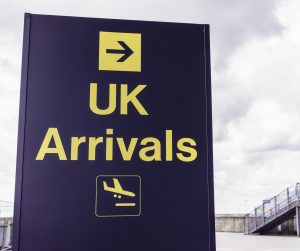
With the Brexit deadline looming we are finding greater amounts of interest from overseas businesses wishing to set up in the UK. For some of these businesses (e.g. those based in the Republic of Ireland) the reasons for expanding into the UK are self-evident. Others come to the UK for more subtle reasons, such as benefiting from the relative weakness of Sterling.
Ease of company incorporation in the UK
Features of the UK landscape are the ease of company incorporation and the ability to have company directors who are all non-UK residents. When compared to the Republic of Ireland our 17% corporation tax rate is unattractive. However this does not appear to dampen the appetite for Irish businesses setting up subsidiaries in the UK.
Structuring for expansion into the UK
When considering expansion into the UK there are a number of decisions which have to be taken about structure. As identified in my blog on the development of the UK corporate tax landscape it is important to model the impact of financing on the UK results as well as modelling the quantum of any opening year losses.
Withholding taxes after Brexit
Typically Irish ownership would access the benefits of the EU Interest and Royalties Directive in order to avoid withholding taxes on intra-group interest payments. In advance of the UK withdrawal from the EU in 2019 the terms of the UK tax treaty may be more relevant and making it more important to register as a borrower under the treaty passport scheme.
As the UK does not have an outbound dividend withholding tax, our departure from the EU does not make dividend withholding taxes a concern. Although this may be efficient as a mechanism for the repatriation of profits out of the UK the impact of dividend income receipts in the home state would still need to be understood.
UK Boards and non-UK Directors
Many inward investment groups have non-UK directors on their UK Boards and this is a common mechanism to enable commercial control of the UK subsidiary by home state persons. Like many countries the UK has a concept of management of control for company tax residency and the impact of our domestic rules should be considered when determining directors numbers, residence and their powers.
Audit requirements
Even if the UK company may not be expected to be particularly large, one still has to consider consolidated accounts and their audit requirements in the home state. This may lead to obligations to audit the UK subsidiary and for the UK auditors to have tight reporting deadlines in order to fit in with group timetables. Typically our audit teams are required to audit the financial statements of the UK subsidiary which have been prepared under UK GAAP and provide GAAP adjustments for overseas parent consolidation. Although this is not necessarily relevant for investment from the Republic of Ireland it can be an important factor to timetable into UK work when reporting to other countries, such as the US.
Future visa requirements
No business is a success without the right people. Expansion into the UK regularly results in staff coming to the UK to manage the early development of the UK subsidiary. Nationals from EU countries have not had to consider visa issues. This may change in the future. The group parent should not assume that its employees can come to the UK without visas. For example an Irish parent company may second staff to the UK to manage the early stage of the UK subsidiary without considering that the staff are, say, Australians working in Dublin. Visa requirements for any secondments need to be explored.
Sending staff to the UK
The UK has tax breaks for movements of staff which may be of benefit. The extent to which the transfer is a temporary matter of a few months or a long term matter should be identified at the outset. This is to ensure that social security is paid to the right country and any relevant terms of bi-lateral social security agreements are applied. Even a short term transfer may result in PAYE obligations or reporting requirements which need to be managed.
Longer term staff transfers inevitably result in the individuals falling into the UK income tax net. Planning for salary equalisation is important when offering the individual a long term transfer. Also whilst developing their total remuneration package it is important that the impact of share options granted to secondees is understood in the UK and home state.
For both secondees and UK employees the HR policies associated with UK employment need to be identified and where appropriate, group policies flexed to meet UK employment laws.
Plan for setting up in the UK
The decision to come to the UK is a relatively easy one for many overseas businesses faced with the uncertainty of Brexit. For our friends in the Republic of Ireland it is possibly an easier decision to make, especially given our close histories, legislative approach and common language. However that does not prevent the need for planning by any group considering coming to the UK at both the tax level and the employee level. We are finding that the most successful businesses are those which engage with us on these matters at an early stage.
The information in this article was correct at the date it was first published.
However it is of a generic nature and cannot constitute advice. Specific advice should be sought before any action taken.
If you would like to discuss how this applies to you, we would be delighted to talk to you. Please make contact with the author on the details shown below.










The deadline is looming ever closer now and with no further clarity on the details the strong advice is to be as prepared as you possibly can be.
If the UK is an important territory for you, make sure you have a base here. It may make the difference to overcoming other regulatory requirements next year.